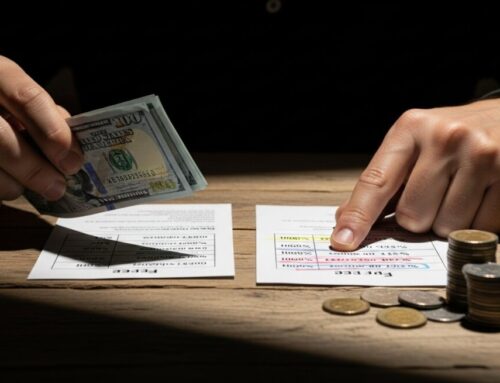

A cash advance can be a lifesaver during financial emergencies. Whether it’s for rent, medical bills, or urgent repairs, it offers quick access to cash when you need it most. But what if you can’t repay on time?
Many borrowers find themselves wondering what happens after a missed cash advance payment. Will it hurt your credit? Will the lender take legal action?
This guide explains what occurs when your cash advance payment is late, how to recover, and what steps to take to avoid a cash advance default. We’ll also share expert advice and smart ways to stay financially secure during tough times.
Understanding How Cash Advances Work
Before diving into the consequences, it helps to understand how a cash advance operates.
A cash advance is a short-term loan that provides quick funds until your next paycheck. You typically agree to repay the loan within a few weeks, often with added fees or interest.
When you sign the agreement, you’re promising to repay the full amount on time. If that doesn’t happen, it can lead to late fees, debt accumulation, and in extreme cases, collection actions.
👉 To explore transparent and flexible repayment options, visit AdvanceCash.com or call (833) 501-3363 today.
What Happens When You Miss a Cash Advance Payment
Missing a payment doesn’t immediately destroy your finances, but it does trigger a series of consequences that can grow more serious if ignored.
Here’s what typically happens after a missed cash advance payment:
1. Late Fees and Penalties
Most lenders charge a late payment fee as soon as your repayment date passes. This can be a flat fee or a percentage of the loan amount.
Even a short delay can make your debt increase faster than you expect.
Example:
If your loan was $400 and the late fee is $30, you now owe $430 — and interest continues to build until it’s paid off.
2. Increased Interest Charges
When your cash advance payment is late, lenders may increase the interest or add daily fees. Cash advances already carry higher-than-average rates, so this can quickly turn into a bigger problem.
This is why paying on time or contacting your lender early is crucial to avoid mounting costs.
3. Collection Calls and Notifications
If your payment remains unpaid, lenders will begin contacting you through phone calls, texts, or emails. Their goal is to remind you of the overdue amount and arrange repayment.
While this can feel stressful, staying calm and cooperative helps. Open communication may lead to a repayment extension or modified plan.
Tip: Ignoring calls can make the situation worse and may result in your account being sent to collections.
4. Negative Impact on Your Credit
Not all cash advance lenders report to credit bureaus, but if they do, a missed payment can lower your credit score.
A record of late payments or defaults can remain on your report for years, making it harder to qualify for future loans or credit cards.
Even if the lender doesn’t report, collection agencies might — which could harm your score indirectly.
👉 Need guidance on repayment and credit safety? AdvanceCash.com can help. Call (833) 501-3363 for expert financial support.
5. Account Going Into Default
If you continue to delay payment without communication, your loan enters default. A cash advance default means the lender assumes you will not repay voluntarily.
At this point, your account may be:
-
Sent to a collection agency.
-
Reported to credit bureaus.
-
Subject to legal action (depending on state laws).
Once your loan is in default, you may face additional costs, including collection fees and legal expenses.
6. Bank Account Deductions (If Authorized)
Some lenders include a bank withdrawal authorization in the loan agreement. This allows them to withdraw the payment directly from your account on the due date.
If the funds aren’t available, they might attempt multiple withdrawals, which can lead to:
-
Overdraft fees.
-
Bank penalties.
-
Additional stress from repeated failed transactions.
7. Debt Collection Agencies
If your loan remains unpaid for several weeks, lenders often sell or transfer the debt to a collection agency.
Debt collectors have legal rights to contact you about repayment but must follow the Fair Debt Collection Practices Act (FDCPA). That means they can’t:
-
Harass you with constant calls.
-
Use abusive language.
-
Threaten arrest or violence.
If you feel harassed, you can file a complaint with your state’s attorney general or the Consumer Financial Protection Bureau (CFPB).
Legal Consequences of Cash Advance Default
It’s natural to worry about legal trouble after a cash advance default, but in most cases, you can’t be arrested for unpaid debt. However, serious financial repercussions can follow.
Possible Legal Outcomes:
-
Civil lawsuits: Lenders may file a case to recover the amount owed.
-
Wage garnishment: In some states, courts can allow lenders to take a portion of your income to settle debt.
-
Bank account garnishment: Rare but possible if the court rules in favor of the lender.
Still, these steps usually happen only after months of non-payment and no communication.
👉 Avoid these outcomes by working directly with a licensed lender like AdvanceCash.com or call (833) 501-3363 to discuss repayment support.
How to Handle a Missed Cash Advance Payment
Missing a payment can happen to anyone. The key is how you handle it afterward.
1. Contact Your Lender Immediately
Honesty goes a long way. Explain your situation and ask for options like:
-
A grace period extension.
-
A smaller partial payment.
-
A new repayment plan.
Most lenders prefer cooperation over escalation.
2. Prioritize Your Repayment
If you have multiple debts, prioritize paying your cash advance first. The interest adds up quickly, so clearing it saves you money in the long run.
Create a short-term budget, cut unnecessary expenses, and redirect funds toward repayment.
3. Avoid Taking Another Cash Advance
Borrowing from one lender to pay another creates a debt cycle. It may provide temporary relief but leads to higher costs later.
Instead, consider alternatives like personal loans or installment payment options that have longer repayment periods and lower interest.
4. Seek Financial Counseling
If you’re struggling to manage multiple debts, financial counselors can help you build a repayment plan and avoid future defaults.
Non-profit organizations and online platforms offer free or low-cost advice tailored to your situation.
Preventing Future Payment Problems
After resolving a late or missed payment, the goal is to stay on track and avoid future issues.
Tips to Stay Current:
-
Set reminders: Use mobile alerts for repayment dates.
-
Automate payments: Schedule direct payments to ensure timely transfers.
-
Build an emergency fund: Save even a small amount monthly for unexpected expenses.
-
Borrow responsibly: Only take loans you can realistically repay.
When used wisely, a cash advance can be a helpful tool — not a financial burden.
👉 Stay financially confident with AdvanceCash.com. Call (833) 501-3363 for support with responsible lending and repayment planning.
External Resource: Learn About Emergency Payday Loans
For more information on short-term borrowing, visit ExpressCash’s Emergency Payday Loans. This guide explains payday loans, risks, and responsible repayment — helping borrowers make safer choices when dealing with urgent financial needs.
Being informed ensures you handle every borrowing situation with confidence.
What to Expect When a Lender Sends Your Account to Collections
Once your loan reaches a collection agency, the focus shifts from lending to recovery.
Here’s What Happens:
-
The agency contacts you through mail, email, or phone.
-
They request payment for the full amount or offer a settlement.
-
You can negotiate for lower payments or a payment plan.
-
Once paid, ensure you get a written confirmation to close the account.
Tip: Keep all communication records. They protect you from any future disputes.
Can You Reapply After Defaulting on a Cash Advance?
If you’ve defaulted once, you can still reapply in the future — but it depends on the lender’s policies.
Most lenders want to see that you’ve repaid your previous debts and improved your financial habits. Rebuilding trust takes time, but it’s absolutely possible.
Working with a transparent, supportive lender like AdvanceCash.com can help you regain financial stability.
👉 Rebuild your borrowing confidence with AdvanceCash.com or call (833) 501-3363 for personalized assistance.
Frequently Asked Questions (FAQs)
1. What happens if I miss a cash advance payment by one day?
You’ll likely be charged a small late fee, but it won’t trigger collection action immediately. Contact your lender to update them.
2. Can missing one payment affect my credit score?
Yes, if the lender reports to credit bureaus. Even a single cash advance payment late can lower your score.
3. Can I go to jail for not paying my cash advance?
No. Debt is a civil matter, not criminal. You can’t be jailed, but lenders may take civil legal action for recovery.
4. What should I do if I can’t afford to pay right now?
Call your lender immediately and ask for a modified payment plan or temporary extension. Many lenders, including AdvanceCash.com, will work with you.
5. How long before my loan goes to collections?
Typically 30–90 days after a missed payment, depending on the lender’s policies.
Missing a cash advance payment doesn’t mean your financial future is over — but acting fast is essential. Ignoring the issue can lead to late fees, credit damage, and even collections.
If you’ve had a missed cash advance payment or fear you might, communicate early, make a plan, and stay informed about your rights. Responsible lenders like AdvanceCash.com can guide you through repayment or refinancing without hidden stress.
👉 Visit AdvanceCash.com or call (833) 501-3363 today to learn how to manage your loan safely and recover control of your finances.
Remember, being proactive today prevents costly mistakes tomorrow — and builds the foundation for a stronger, debt-free financial future.





